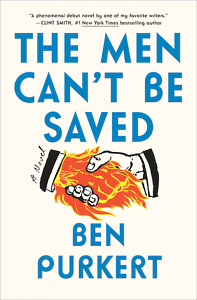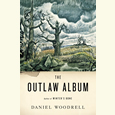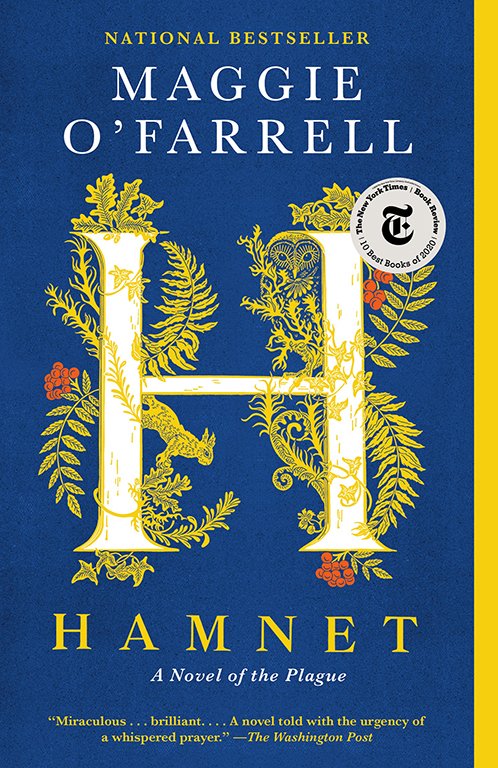Wild Goose Chase for Enlightenment
In The Men Can’t Be Saved, a rascally antihero struggles to get out of his own way
Beware the curse of early success. As Seth Taranoff — protagonist of Ben Purkert’s debut novel, The Men Can’t Be Saved — discovers after his tagline for a brand of adult undergarments goes viral, the combination of youth and swollen ego is a recipe for disaster. A copywriter for a mid-level New York marketing firm, Seth begins to ignore instructions from his superiors (one of whom he dismisses as “my boss in name only”) and to reject criticism. The notoriety he enjoys for one trendy slogan doesn’t simply go to his head; it disconnects him from reality.

One of his colleagues astutely sums up Seth’s problem: “You think you understand everyone, and that makes you better than everyone. But you don’t, and it doesn’t.”
Seth learns quickly that in the marketing industry you are only as valuable as your last campaign. When he struggles to duplicate his triumph, confidence in his “creative genius” becomes more liability than virtue. He seems to be the only one who believes in the marketing magic of his later contributions (e.g., “More Might for the Fight” for the Prostate Cancer Research Group). His agency loses clients and begins downsizing, and soon Seth is making mocha lattes at a café-cum-chocolatier, his onetime branding achievement relegated to the dustbin.
Long before Seth realizes that, at work and in romance, he is his own worst enemy, readers will shout at the page for him to get his act together. Save your breath. Seth needs to self-sabotage a dozen different ways (lying to family, dodging his landlord, quaffing pills) before he begins to see the light. To recognize his true path, Seth must encounter other broken souls and somehow render them aid. The process is slow and messy; in Seth’s own words, it is “a wild-goose chase for enlightenment.”
The Men Can’t Be Saved is a romp of a novel with an entertaining gallery of misfits, junkies, and charlatans Seth meets on his odyssey. Robert “Moon” McCloone, a marketing executive who joins several of Seth’s escapades, spends $20,000 on a human skull and defends the practice as a way to diversify his investment portfolio. “[W]hen inflation bites you in the ass, what do you want to be holding? Physical product. Real assets,” Moon tells Seth. “This is as real as it gets.” Seth finds a mentor in Rabbi Nadav, who welcomes Seth into his home and shares the wisdom of Jewish mystics, but the rabbi’s words acquire an ironic subtext when Seth learns that Nadav suffers from an addiction that could ruin his family.
 Among the forces that mire Seth in a pit of despond is the pervasive atmosphere of sexism. Moon is the walking embodiment of toxic masculinity, a privileged bro who brags about sexual conquests and leads his bachelor party to a strip club despite having broken off his engagement. A female co-worker — Josie, with whom Seth enjoys “light recreation” after hours in his boss’s office — tells Seth that she has been sexually harassed by every man in their firm. When he mumbles “a vague apology offered on behalf of men in general,” Josie dismisses his contrition. “You are what you are, Seth.”
Among the forces that mire Seth in a pit of despond is the pervasive atmosphere of sexism. Moon is the walking embodiment of toxic masculinity, a privileged bro who brags about sexual conquests and leads his bachelor party to a strip club despite having broken off his engagement. A female co-worker — Josie, with whom Seth enjoys “light recreation” after hours in his boss’s office — tells Seth that she has been sexually harassed by every man in their firm. When he mumbles “a vague apology offered on behalf of men in general,” Josie dismisses his contrition. “You are what you are, Seth.”
The women in Purkert’s novel — by turns callous, manipulative, and desperate — seem as far from salvation as the clueless, predatory men. Seth dates two women who use him for their own purposes before unceremoniously dumping him when their hidden lives become thorny. Their emptiness reflects Seth’s own lack of identity, suggesting that the core problem is not gender relations but something deeper, a lack of faith in the value of living ethically.
Between scenes of comic mishap, The Men Can’t Be Saved touches on questions relating to religious belief and the definition of goodness. Seth takes a “Birthright” tour of Israel that brings him no closer to a personal understanding of Judaism. Before being stripped of his standing in the late-capitalist marketplace, he clings to the notion that he can effect a kind of immortality by creating “unforgettable” slogans. Later, battered and disillusioned, he begins to grasp that faith does not entail belief in God or the afterlife, but in the reality of the present.
The Men Can’t Be Saved fits into the sub-genre of novels about lovable rascals who must be shaken by the lapels for them to realize that happiness is staring them in the face (typically in the form of a romantic partner). Writers like Nick Hornby and Jonathan Tropper have produced original renditions of this archetype; Inman Majors’ Wonderdog is its apotheosis. Seth Taranoff more closely resembles the antiheroines in recent novels by Otessa Moshfegh and Sally Rooney; the only way they can find redemption is through prolonged suffering (sometimes physical). Eventually, though, after arduous struggle, Seth finds a way to belie the ominous title of this satisfying novel.

Sean Kinch grew up in Austin and attended Stanford. He earned a Ph.D. from the University of Texas. He teaches English at Montgomery Bell Academy in Nashville.


